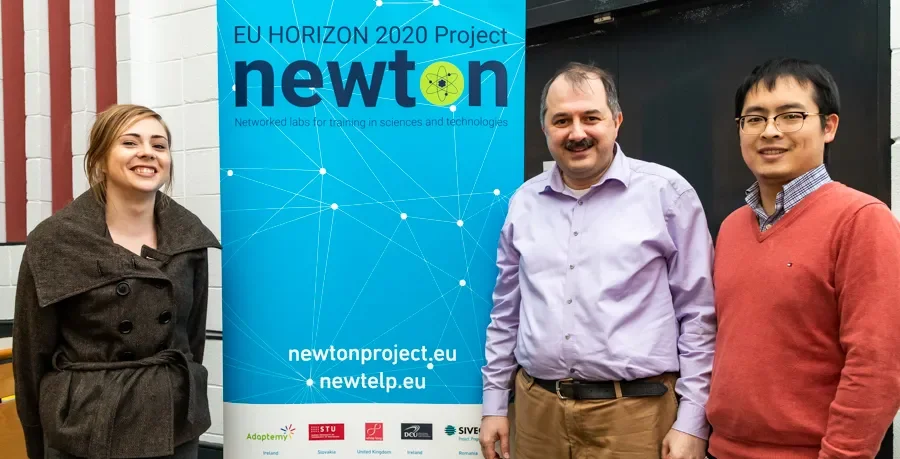

DCU project aims at improving quality of learning with adaptive streaming technology
The NEWTON project, part of the EU’s Horizon 2020, is aiming to make buffering video a thing of the past. The NEWTON project researchers have developed a smart streaming technology that identifies both the type of device and networks the user is on and determines how best to deliver video. Depending on whether users are on the move or not, if there are lots of other people using the network that they’re on, and if other video content is accessed, the NEWTON adaptive video delivery technology adjusts dynamically the bitrate of the video accordingly, so that buffering and screen artifacts are reduced.
With this technology, users video perceived quality actually increases because there are less interruptions to the stream and the adjustment of video quality imperceptible.
Today (Tuesday March 5th 2019), the largest live deployment of the NEWTON technology will begin with over 400 DCU Business School students from the MT100 Digital Innovation Creativity & Enterprise module.
They will access rich media educational content using NEWTON technologies and its NEWTELP platform under the coordination of the Business School academics Dr. Roisin Lyons and Dr. Grace Fox. Dr. Lyons and Dr. Fox have collaborated with Assoc. Prof. Gabriel-Miro Muntean, the coordinator of the EU Horizon 2020 project and Dr. Ting Bi, NEWTON postdoctoral researcher with the School of Electronic Engineering, to deploy these innovative technologies for the benefit of their DCU students, enhancing their learning experience and potentially help increase their learning outcomes.
The NEWTON technology deployment will take place from March 5th until April 16th, 2019.
Assoc. Prof. Gabriel-Miro Muntean said “This is a very important step in deploying NEWTON project technologies for the benefit of students in order to improve their quality of experience when consuming rich media content. We hope that this increase in quality of experience will contribute to improving student satisfaction in the learning process and eventually their learning outcome. I am very happy to see how the results of the NEWTON project research and development are being used by academics not involved directly in the NEWTON project, deploying them in their modules.”
About NEWTON
The NEWTON Adaptive Multimedia technologies are developed by DCU researchers led by Assoc. Prof. Gabriel-Miro Muntean, the coordinator of the EU Horizon 2020 project NEWTON.
NEWTON develops, integrates and disseminates innovative Technology Enhanced Learning methods and tools, to create or inter-connect existing state-of the art teaching labs and to build a pan-European learning network platform that supports fast dissemination of learning content to a wide audience in a ubiquitous manner. NEWTON focuses on employing novel technologies in order to increase learner quality of experience, improve learning process and potentially increase learning outcome.
